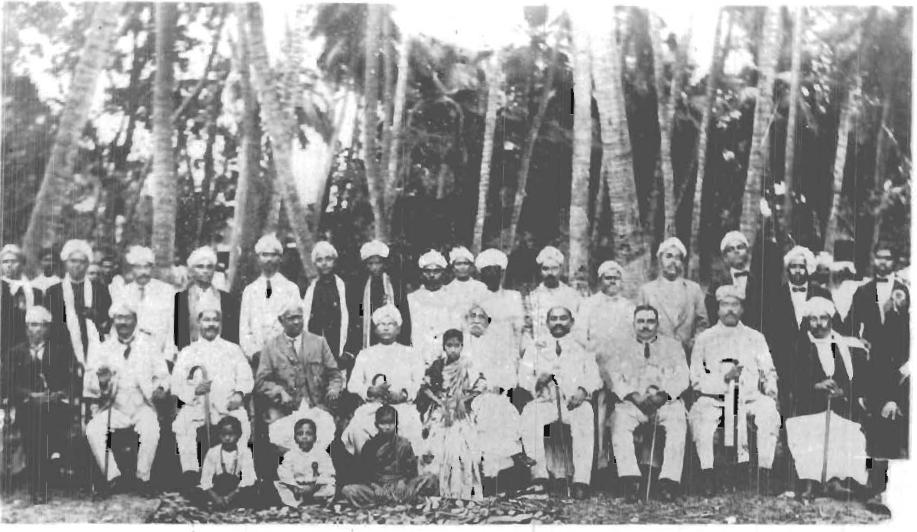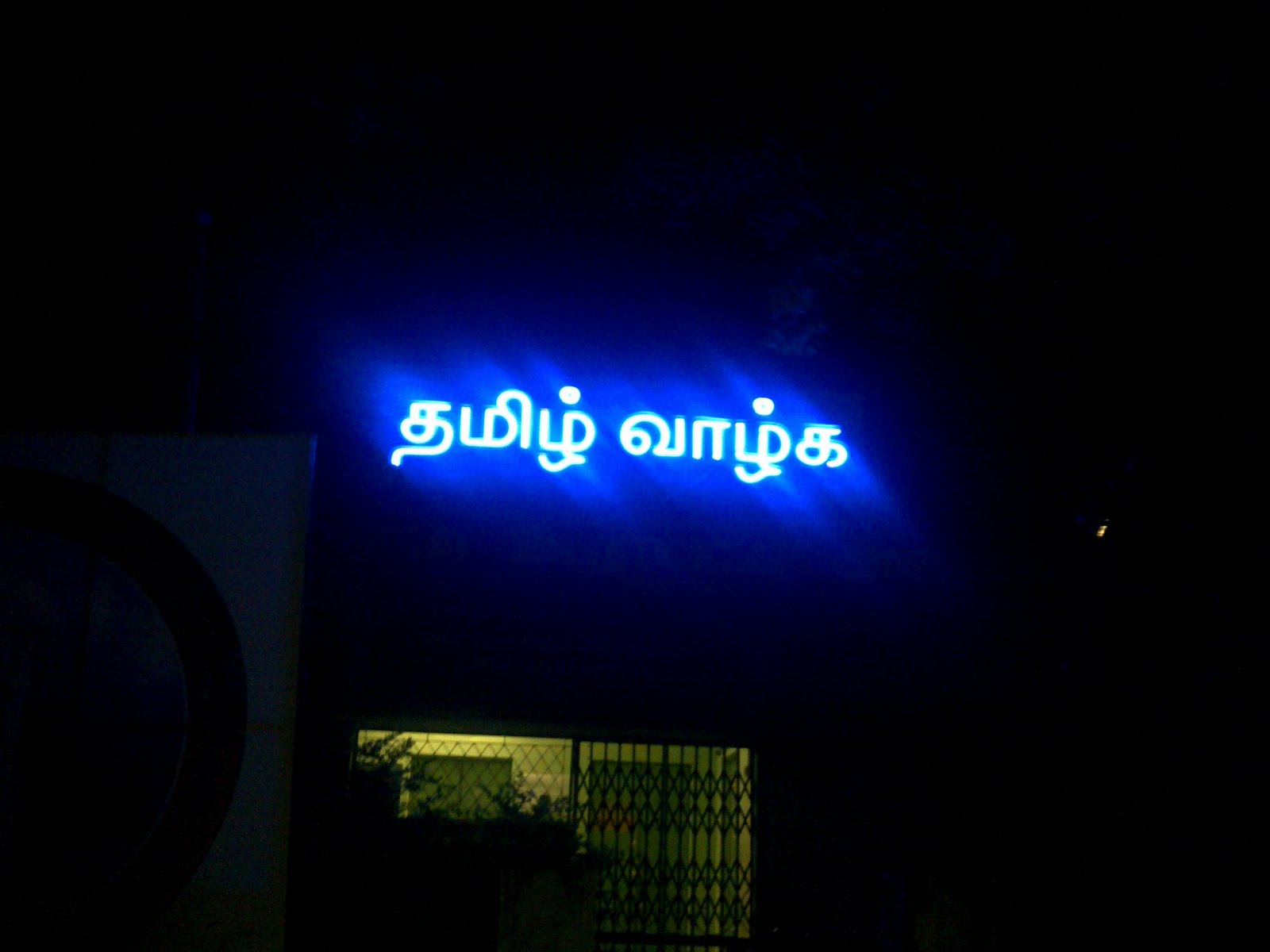|
E. V. K. Sampath
Erode Venkatappa Krishnasamy Sampath( – 23 February 1977), usually referred to as ''E. V. K. Sampath'' was a prominent politician from Tamil Nadu, India. He was an advocate of the Dravidian Movement of Periyar E. V. Ramasamy and was considered by some as his political heir. He later split from Periyar's Dravidar Kazhagam to form Dravida Munnetra Kazhagam (DMK) along with C. N. Annadurai. In spite of being one of the founders of DMK he later left and formed his own party, by the name, Tamil National Party. Nevertheless, he later merged his party with the Indian National Congress.Family background - Iniyan Sampath He is a former from the constituency of |
Erode
Erode () is a city in the Indian state of Tamil Nadu. Erode is the seventh largest urban agglomeration in the state, after Chennai, Coimbatore, Madurai, Tiruchirapalli, Tiruppur and Salem. It is also the administrative headquarters of the Erode district. Administered by a city municipal corporation since 2008, Erode is a part of Erode Lok Sabha constituency that elects its member of parliament. Located on the banks of River Kaveri, it is situated centrally on South Indian Peninsula, about southwest of its state capital Chennai, south of Bengaluru, east of Coimbatore and east of Kochi. Erode is an agricultural, textile and a BPO hub and among the largest producers of turmeric, hand-loom and knitwear, and food products. History Etymology of Erode might have its origin in the Tamil phrase ''Eeru Odai'' meaning ''two streams'' based on presence of two water courses of Perumpallam and Pichaikaranpallam Canal. Alternatively, it might have been derived from Tamil phras ... [...More Info...] [...Related Items...] OR: [Wikipedia] [Google] [Baidu] |
Justice Party (India)
The Justice Party, officially the South Indian Liberal Federation, was a political party in the Madras Presidency of British India. It was established on 20 November 1916 in Victoria Public Hall in Madras by Dr C. Natesa Mudaliar and co-founded by T. M. Nair, P. Theagaraya Chetty and Alamelu Mangai Thayarammal as a result of a series of non-Brahmin conferences and meetings in the presidency. Communal division between Brahmins and non-Brahmins began in the presidency during the late-19th and early-20th century, mainly due to caste prejudices and disproportionate Brahminical representation in government jobs. The Justice Party's foundation marked the culmination of several efforts to establish an organisation to represent the non-Brahmins in Madras and is seen as the start of the Dravidian Movement. During its early years, the party was involved in petitioning the imperial administrative bodies and British colonial officials demanding more representation for non-Brahmins in go ... [...More Info...] [...Related Items...] OR: [Wikipedia] [Google] [Baidu] |
Tamil Nationalism
Tamil nationalism is the ideology which asserts that the Tamil people constitute a nation and promotes the cultural unity of Tamil people. Tamil nationalism is primarily a secular nationalism, that focus on language and homeland. It expresses itself in the form of linguistic purism ("Pure Tamil"), nationalism and irredentism ("Tamil Eelam"), Social equality (" Self-Respect Movement") and Tamil Renaissance. Originally, Tamil people ruled in Tamilakam and parts of Sri Lanka. During the colonial period, the Tamil areas came under the rule of British India and Ceylon. This saw the end of the sovereignty of Tamils and reduced them to minority status under a political model implemented during the British Raj. Since the independence of India and Sri Lanka, Tamil separatist movements have been actively suppressed in both countries. Sri Lanka Since the adoption of the Vaddukoddai Resolution in 1976 under the leadership of S.J.V. Chelvanayakam, Tamil nationalists in Sri Lanka have re ... [...More Info...] [...Related Items...] OR: [Wikipedia] [Google] [Baidu] |
Chennai
Chennai (, ), formerly known as Madras ( the official name until 1996), is the capital city of Tamil Nadu, the southernmost Indian state. The largest city of the state in area and population, Chennai is located on the Coromandel Coast of the Bay of Bengal. According to the 2011 Indian census, Chennai is the sixth-most populous city in the country and forms the fourth-most populous urban agglomeration. The Greater Chennai Corporation is the civic body responsible for the city; it is the oldest city corporation of India, established in 1688—the second oldest in the world after London. The city of Chennai is coterminous with Chennai district, which together with the adjoining suburbs constitutes the Chennai Metropolitan Area, the 36th-largest urban area in the world by population and one of the largest metropolitan economies of India. The traditional and de facto gateway of South India, Chennai is among the most-visited Indian cities by foreign tourists. It was ranked the ... [...More Info...] [...Related Items...] OR: [Wikipedia] [Google] [Baidu] |
Pachaiyappa's College
Pachaiyappa's College is one of the oldest educational institutions in Chennai, in the South Indian state of Tamil Nadu. In addition, it is the first sole Indian college in Madras Presidency. History Pachaiyappa's College, Chennai is the result of an act of philanthropy of its progenitor, Pachaiyappa Mudaliar, who was a financier and merchant by the age of 22. Inspired and motivated by the preciousness and large-heartedness of the benevolent founder. This college had its genesis in the famous will of Pachaiyappa Mudaliar. The college was established as Pachaiyappa's Central Institution at Popham's Broadway on 1 January 1842, from money given in Pachaiyappa Mudaliar's will. It was the first educational institution in South India which was not funded by the British. The architecture of the institution is monumental, consisting of Indo-Saracenic and the architecture of South India. It gained college status in 1889, and until 1947 only admitted Hindu students. In addition, Pachai ... [...More Info...] [...Related Items...] OR: [Wikipedia] [Google] [Baidu] |
Caste
Caste is a form of social stratification characterised by endogamy, hereditary transmission of a style of life which often includes an occupation, ritual status in a hierarchy, and customary social interaction and exclusion based on cultural notions of purity and pollution. * Quote: "caste ort., casta=basket ranked groups based on heredity within rigid systems of social stratification, especially those that constitute Hindu India. Some scholars, in fact, deny that true caste systems are found outside India. The caste is a closed group whose members are severely restricted in their choice of occupation and degree of social participation. Marriage outside the caste is prohibited. Social status is determined by the caste of one's birth and may only rarely be transcended." * Quote: "caste, any of the ranked, hereditary, endogamous social groups, often linked with occupation, that together constitute traditional societies in South Asia, particularly among Hindus in India. Althoug ... [...More Info...] [...Related Items...] OR: [Wikipedia] [Google] [Baidu] |
Self-respect
Self-esteem is confidence in one's own worth or abilities. Self-esteem encompasses beliefs about oneself (for example, "I am loved", "I am worthy") as well as emotional states, such as triumph, despair, pride, and shame. Smith and Mackie (2007) defined it by saying "The self-concept is what we think about the self; self-esteem, is the positive or negative evaluations of the self, as in how we feel about it." Self-esteem is an attractive psychological construct because it predicts certain outcomes, such as academic achievement, happiness, satisfaction in marriage and relationships, and criminal behavior. Self-esteem can apply to a specific attribute or globally. Psychologists usually regard self-esteem as an enduring personality characteristic (''trait self-esteem''), though normal, short-term variations (''state self-esteem'') also exist. Synonyms or near-synonyms of self-esteem include: self-worth, self-regard, self-respect, and self-integrity. History The concept of self-estee ... [...More Info...] [...Related Items...] OR: [Wikipedia] [Google] [Baidu] |
Human Rights
Human rights are Morality, moral principles or Social norm, normsJames Nickel, with assistance from Thomas Pogge, M.B.E. Smith, and Leif Wenar, 13 December 2013, Stanford Encyclopedia of PhilosophyHuman Rights Retrieved 14 August 2014 for certain standards of human behaviour and are regularly protected in Municipal law, municipal and international law. They are commonly understood as inalienable,The United Nations, Office of the High Commissioner of Human RightsWhat are human rights? Retrieved 14 August 2014 fundamental rights "to which a person is inherently entitled simply because she or he is a human being" and which are "inherent in all human beings",Burns H. Weston, 20 March 2014, Encyclopædia Britannicahuman rights Retrieved 14 August 2014. regardless of their age, ethnic origin, location, language, religion, ethnicity, or any other status. They are applicable everywhere and at every time in the sense of being Universality (philosophy), universal, and they are Egalitari ... [...More Info...] [...Related Items...] OR: [Wikipedia] [Google] [Baidu] |
Backward Castes
The Other Backward Class is a collective term used by the Government of India to classify castes which are educationally or socially backward. It is one of several official classifications of the population of India, along with General castes, Scheduled Castes and Scheduled Tribes (SCs and STs). The OBCs were found to comprise 52% of the country's population by the Mandal Commission report of 1980, and were determined to be 41% in 2006 when the National Sample Survey Organisation took place. There is substantial debate over the exact number of OBCs in India; it is generally estimated to be sizable, but many believe that it is higher than the figures quoted by either the Mandal Commission or the National Sample Survey. In the Indian Constitution, OBCs are described as socially and educationally backward classes (SEBC), and the Government of India is enjoined to ensure their social and educational development — for example, the OBCs are entitled to 27% reservations in ... [...More Info...] [...Related Items...] OR: [Wikipedia] [Google] [Baidu] |
The Times Of India
''The Times of India'', also known by its abbreviation ''TOI'', is an Indian English-language daily newspaper and digital news media owned and managed by The Times Group. It is the third-largest newspaper in India by circulation and largest selling English-language daily in the world. It is the oldest English-language newspaper in India, and the second-oldest Indian newspaper still in circulation, with its first edition published in 1838. It is nicknamed as "The Old Lady of Bori Bunder", and is an Indian " newspaper of record". Near the beginning of the 20th century, Lord Curzon, the Viceroy of India, called ''TOI'' "the leading paper in Asia". In 1991, the BBC ranked ''TOI'' among the world's six best newspapers. It is owned and published by Bennett, Coleman & Co. Ltd. (B.C.C.L.), which is owned by the Sahu Jain family. In the Brand Trust Report India study 2019, ''TOI'' was rated as the most trusted English newspaper in India. Reuters rated ''TOI'' as India's most trus ... [...More Info...] [...Related Items...] OR: [Wikipedia] [Google] [Baidu] |
All India Anna Dravida Munnetra Kazhagam
The All India Anna Dravida Munnetra Kazhagam (; AIADMK) is an Indian regional political party with great influence in the state of Tamil Nadu and the union territory of Puducherry. It is a Dravidian party founded by the former chief minister of Tamil Nadu M. G. Ramachandran (M.G.R.) at Madurai on 17 October 1972 as a breakaway faction from the Dravida Munnetra Kazhagam after M. Karunanidhi expelled him from the party for demanding an account as the party treasurer. The party is adhering to the policy of socialism and secularism based on the principles of C. N. Annadurai (Anna) collectively coined as ''Annaism'' by M.G.R. The party has won a seven-time majority in the Tamil Nadu Legislative Assembly and has emerged as the most successful political outfit in the state's history. It is currently the main opposition party in the Tamil Nadu Legislative Assembly and part of the India-ruling National Democratic Alliance. From 9 February 1989 to 5 December 2016, the AIADMK was ... [...More Info...] [...Related Items...] OR: [Wikipedia] [Google] [Baidu] |





.jpg)
